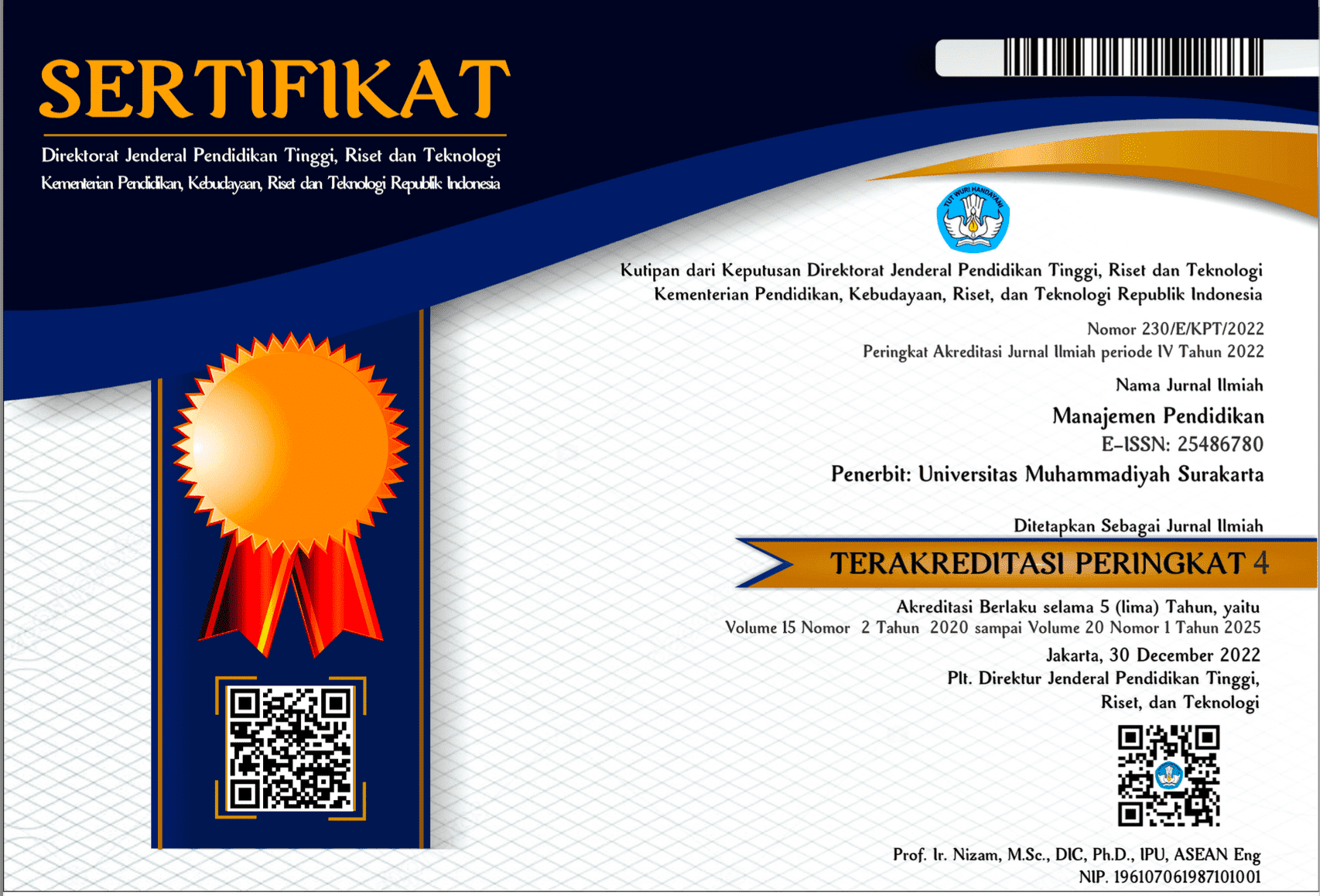Peningkatan Prestasi Belajar Materi Bilangan Berpangkat Melalui Model Discovery Learning
Mujiyanto Mujiyanto(1*)(1)
(*) Corresponding Author
Abstract
Keywords
Full Text:
PDFReferences
Abdurrahman, Abror, 1993. Psikologi Pendidikan. Yogyakarta : PT. Tiara Wacana.
BSNP. 2007. Standar Kompetensi dan Kompetensi Dasar Untuk SMP/MTs Kurikulum Tingkat Satuan Pendidikan Jenjang Pendidikan Dasar dan Menengah. Jakarta
Costa. A .1988. Developing Minds A Resource Book for Teaching Thinking. Association for Supervision and Curriculum Development. Alexandria Virginia.
Dahar, R.W .1996. Teori-teori Belajar. Jakarta: Erlangga.
Darsono, Max, 2000. Belajar dan Pembelajaran. Yogyakarta: IKIP Yogyakarta Press.
Departemen Pendidikan Nasional. 2003. Standar Kompetensi Mata Pelajaran Matematika SMP Sekolah Menengah Pertama. Jakarta:BSNP.
Downs, S.S. 1987. “Developing Learning Skills,” informasi Learning Management: Emerging Directions for Learning to learn informasi the workplace, edited by M.E.Cheren.Columbus: Ohio State University.
Gunarsa, Singgih D., 1995. Psikologi Perkembangan Anak dan Remaja. BPK Gunung Mulia. Jakarta
Hamalik, Oemar. 2004. Psikologi Belajar dan Mengajar. Bandung : Sinar Baru Algesindo.
Habeyb, S.F. 1983. Kamus Populer. Jakarta : Nurani.
Mahmud, M. Dimyati, 1993. Psikologi Pendidikan. Yogyakarta : PT. Tiara Wacana.
Mustaqim. 2008. Psikologi Pendidikan. Semarang : Fakultas Tarbiyah IAIN Walisongo Semarang.
Nasution S., 2002. Kurikulum dan Pengajaran. Jakarta : P.T. C.V. Bina Aksara.
Novak, D. and D.B. Gowin. 1985. Learning How to Learn, Second Edition. New York: Cambridge University Press.
Slameto, 1990. Psikologi Belajar. Semarang: IKIP Semarang.
Sujati. 2000. Penelitian Tindakan Kelas. Yogyakarta: Universitas Negeri Yogyakarta.
Suwandi, Sarwiji. 2009. Modul Pendidikan dan Latihan Profesi Guru : Penelitian Tindakan Kelas. Surakarta: UNS.
Syamsudini. 2012. Aplikasi Metode Discovery Learning Dalam Meningkatkan Kemampuan Memecahkan Masalah, Motivasi Belajar dan Daya Ingat Siswa.
Syah, M. 1996. Psikologi Pendidikan Suatu Pendekatan Baru. PT Remaja Rosdakarya,
Bandung.
Tulus, Tu’u, 2004. Peran Disiplin Pada Perilaku dan Prestasi Siswa. Jakarta: Grasindo
Undang-Undang Republik Indonesia Nomor 20 Tahun 2003 Tentang Sistem Pendidikan Nasional.
Article Metrics
Abstract view(s): 379 time(s)PDF: 422 time(s)
Refbacks
- There are currently no refbacks.










